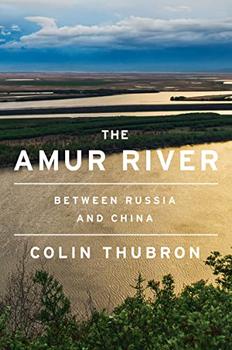Summary | Excerpt | Reviews | Beyond the book | Read-Alikes | Genres & Themes | Author Bio

A Village Called Wasteland and the Transformation of Rural China
by Michael MeyerA combination of memoir, contemporary reporting, and historical research, presenting a unique profile of China's legendary northeast territory.
In the tradition of In Patagonia and Great Plains, Michael Meyer's In Manchuria is a scintillating combination of memoir, contemporary reporting, and historical research, presenting a unique profile of China's legendary northeast territory. For three years, Meyer rented a home in the rice-farming community of Wasteland, hometown to his wife's family, and their personal saga mirrors the tremendous change most of rural China is undergoing, in the form of a privately held rice company that has built new roads, introduced organic farming, and constructed high-rise apartments into which farmers can move in exchange for their land rights. Once a commune, Wasteland is now a company town, a phenomenon happening across China that Meyer documents for the first time; indeed, not since Pearl Buck wrote The Good Earth has anyone brought rural China to life as Meyer has here.
Amplifying the story of family and Wasteland, Meyer takes us on a journey across Manchuria's past, a history that explains much about contemporary China - from the fall of the last emperor to Japanese occupation and Communist victory. Through vivid local characters, Meyer illuminates the remnants of the imperial Willow Palisade, Russian and Japanese colonial cities and railways, and the POW camp into which a young American sergeant parachuted to free survivors of the Bataan Death March. In Manchuria is a rich and original chronicle of contemporary China and its people.
...this is a remarkable piece of reporting supplemented with pictures - a snapshot of China at a particular place and time, and the peeks into Manchuria’s history will serve as solid ground for further research...continued
Full Review
(708 words)
This review is available to non-members for a limited time. For full access,
become a member today.
(Reviewed by Poornima Apte).
As Michael Meyer's book, In Manchuria, explains, in the village of Wasteland, "Eastern Fortune is offering apartments in exchange for farmers' homes, which will be razed and the land converted to paddies." It remains unclear exactly how much — if any — control the farmers will have over their plots of land. Will they be allowed to cultivate it under the auspices of the larger company or will they now be employees of Eastern Fortune merely executing the company's directions for the land for a fixed salary?
 Giant agribusinesses, like Eastern Fortune in China, exist all over the world functioning according to varying models. In some cases the companies own all land, while in other cases farmers are essentially ...
Giant agribusinesses, like Eastern Fortune in China, exist all over the world functioning according to varying models. In some cases the companies own all land, while in other cases farmers are essentially ...
This "beyond the book" feature is available to non-members for a limited time. Join today for full access.

If you liked In Manchuria, try these:

by Colin Thubron
Published 2022
The most admired travel writer of our time - author of Shadow of the Silk Road and To a Mountain in Tibet - recounts an eye-opening, often perilous journey along a little known Far East Asian river that for over a thousand miles forms the highly contested border between Russia and China.

The Museum of Whales You Will Never See
by Kendra Greene
Published 2020
Mythic creatures, natural wonders, and the mysterious human impulse to collect are on beguiling display in this poetic tribute to the museums of an otherworldly island nation.